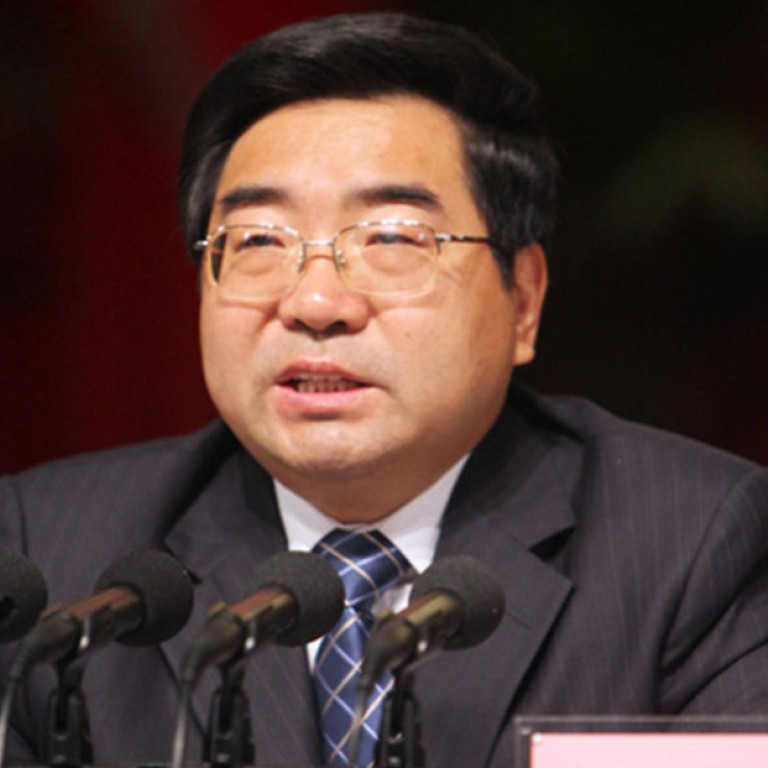
Reform underway for China's top economic planning agency
China’s top economic planning agency is likely to undergo a major transformation in the years ahead, as the Communist Party shows increased willingness to move away from an economy heavily reliant on investment towards more liberalised markets.
For decades, the National Development and Reform Commission (NDRC) has been dubbed “the little State Council” for its unparalleled power among government agencies to approve or reject major industrial projects. The commission is now expected to lose much of this oversight function, and will instead focus on devising mid- to long-term economic strategies.
The transformation of the NDRC’s role comes as the party plans to set up a central leading work group, probably headed by President Xi Jinping or Premier Li Keqiang, on deepening reforms. The panel will oversee and co-ordinate reforms in all kinds of areas including fiscal, financial, cultural, social, political and environmental, according to the resolution of party leaders following their third-plenum.
Such reforms are deemed crucial to China’s goal of maintaining economic growth of about 7 per cent for the years ahead as Beijing explore ways to boost domestic consumption as a new driver of the economy. The authorities realise that too-rapid expansion in investment is not sustainable, and has caused overcapacity in various industries, fuelled financial risk, and exaggerated the monopoly of state-owned enterprises.
Yale University professor Stephen Roach told the Post: “With the third plenum shifting the focus of China’s macro strategy from a production-oriented approach that was tailor-made for the NDRC to a more balanced consumer-led strategy, a new policy decision-making process is warranted.”
“Largely for that reason, the ascendance of the new leading committee threatens to marginalise the role of the NDRC,” said Roach, a former non-executive chairman for Morgan Stanley in Asia and a veteran China watcher. Chi Fulin , executive president of the Hainan-based China Institute for Reform and Development, expected that some NDRC reform functions would be transferred to the central leadership.
“Currently, the NDRC not only manages macroeconomic policies but is also responsible for carrying out reforms. It would be difficult for such an agency to launch reforms against itself,” he said. Chi, a well-known state researcher long involved in designing the nation’s reform roadmaps, said it was still unclear whether there would be layoffs at NDRC’s various departments.
Lian Weiliang, the NDRC deputy chairman, told a press briefing earlier this week that the commission would be mainly responsible for “pushing forward, implementing, and comprehensively co-ordinating” future “economic system” reforms. This would include studying the major issues in opening up markets and to guide economic experiments and development of trial zones, he said.
The amount of investment that needed to be directly reviewed by the central government would be reduced step by step, probably by as much as 60 per cent, Lian said.
Unless projects were linked special issues such as national security, ecological safety or strategic resource exploration, they should be decided by enterprises rather than NDRC, Lian said.
The commission at present includes “development” and “reform” in its name, as one of its function is to oversee prices for water, oil, natural gas, transport and power. However, it has long been criticised for focusing too much on development while moving slowly on reforms.
Late last year, Xu Xiaonian , an outspoken economist and professor at the China Europe International Business School, even urged the government to disband the NDRC as its existence distorted the allocation of resources and was more of an obstacle than an aid to developing a market economy.
Under the current system, resources have largely been allocated in favour of state-owned enterprises with more bargaining power but far less efficiency than private enterprise.
The NDRC is a modern counterpart of the old State Planning Commission established in 1952, which carried out tasks to managed the centrally planned economy modelled on the Soviet Union model. In 1998, it was renamed the State Development Planning Commission. In 2003, it was merged with the State Council Office for Restructuring the Economic System and part of the State Economic and Trade Commission to form the NDRC.
Although the government has been streamlining administrative procedures in the past few years, the NDRC has retained the final say on major investments ranging from steel and aluminium to information technology and energy projects, and has wielded great influence on the national economy.
For example, it approved nearly 1,500 projects between April 19 last year and March 21 this year, according to a report by China Newsweek magazine in April.
Unrestricted investment growth in the past decade has left a legacy of economic and environmental problems. Many steel and aluminium plants struggle with excessive capacity. Local governments have incurred huge debt as they borrowed feverishly to finance infrastructure projects. Air quality in some mainland cities ranks among the worst in the world.
Economic growth, after soaring by about 10 per cent a year for the past decades, cooled to a 13-year low of 7.8 per cent last year and is forecast to stay below 8 per cent this year as the government reins in credit supply to squeeze asset bubbles, and as demand for Chinese-made products falters.
Yuan Gangming , a researcher with the Chinese Academy of Social Sciences, is not convinced this round of reforms of the NDRC will succeed.
“Reducing investment approvals was the most exciting step mentioned in the third-plenum document. But I doubt it will become a reality, because it’s also an area that the government is most reluctant to relinquish,” he said.
Gu Shengzu , a senior lawmaker who specialises in economic and financial affairs, indicated that the NDRC’s influence would not wane after the transformation, because it will still have to tackle what he called the “heavy” tasks of planning various reforms.

